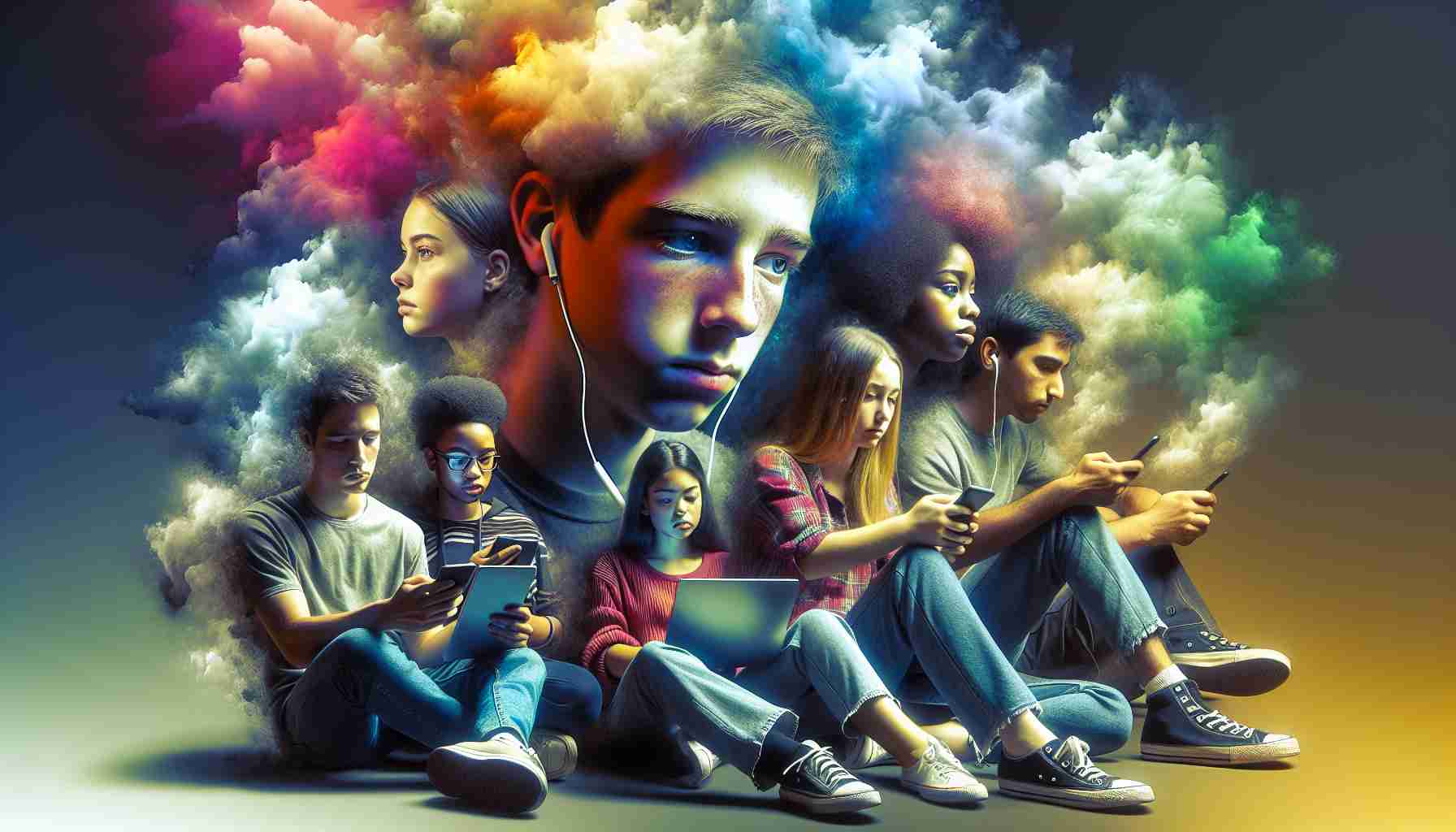A recent decision in Los Angeles has sparked a debate regarding the use of smartphones in public schools. The school district has voted in favor of a complete ban on smartphones in an effort to improve students’ mental well-being. This decision comes as California’s governor aims to curb the negative impact of these devices on students’ mental health. Schools in Los Angeles, which houses the second-largest school district in the country, will now need to implement plans to prevent the use of mobile phones and social media networks throughout the day.
Research indicates the detrimental effects of excessive smartphone use on teenagers. Studies have linked increased smartphone usage to higher levels of stress, anxiety, depression, sleep problems, aggression, and suicidal thoughts among adolescents. Additionally, academic performance has been shown to improve for students who do not use smartphones during school hours.
The concerns surrounding social media platforms are also gaining traction nationwide. Experts warn about the negative impact of these platforms on the mental health of American youth. Chief medical officers have advocated for warning labels on social media platforms, similar to those on cigarette packs, to alert users about the potential risks. Spending more than three hours daily on social media has been found to double the risk of developing symptoms related to depression and anxiety in teenagers.
While the debate over smartphone bans in schools continues, it remains a rare point of agreement between political parties in the U.S. States like Florida have already implemented similar bans, showcasing bipartisan support for such measures. Efforts to introduce comparable initiatives are underway in several other states across the country. The issue of restricting smartphone use in schools is not unique to the U.S., as many other countries have also adopted similar approaches.
Policy-makers emphasize the urgency of addressing this issue and promoting a focus on student well-being. Despite potential pushback from parents, experts argue that schools must prioritize students’ welfare over concerns such as emergency communication protocols. As schools move towards stricter smartphone policies, students stand to benefit from a more focused and conducive learning environment.
Additional Facts:
– There is a growing body of research suggesting a correlation between social media use and body image issues, with teenagers frequently exposed to edited or curated images that can lead to feelings of inadequacy or low self-esteem.
– Cyberbullying, a phenomenon prevalent on social media platforms, has a significant impact on the mental health of teenagers, causing emotional distress, anxiety, and even suicidal ideation in some cases.
– Social media use has also been linked to poor sleep quality among teenagers, as the constant engagement with online content can disrupt sleep patterns and lead to sleep deprivation.
Key Questions:
1. How can parents and educators strike a balance between allowing teenagers access to social media for connectivity and the potential negative impact on mental health?
2. What role should social media platforms themselves play in safeguarding teenagers’ mental well-being, beyond the implementation of warning labels?
3. Are there effective strategies or interventions that can mitigate the harmful effects of excessive social media use on teenagers’ mental health?
Key Challenges and Controversies:
– Balancing teenagers’ right to social connectivity and the potential risks associated with social media use poses a complex challenge for policymakers and educators.
– The effectiveness of blanket bans on smartphones or social media in schools is a subject of debate, with some arguing that education about responsible usage may be a more sustainable solution.
– There are concerns about the long-term psychological impact of growing up in a society increasingly reliant on social media for communication and validation.
Advantages:
– Social media can facilitate positive connections, support networks, and educational opportunities for teenagers.
– Platforms can be used as tools for self-expression, creativity, and community-building among young people.
Disadvantages:
– The potential for cyberbullying, exposure to harmful content, and addictive behaviors on social media platforms can detrimentally affect mental health.
– Excessive social media usage can lead to decreased real-world social interaction, feelings of isolation, and poor self-image.
For further information on this topic, you may visit World Health Organization for global perspectives on mental health and well-being.
